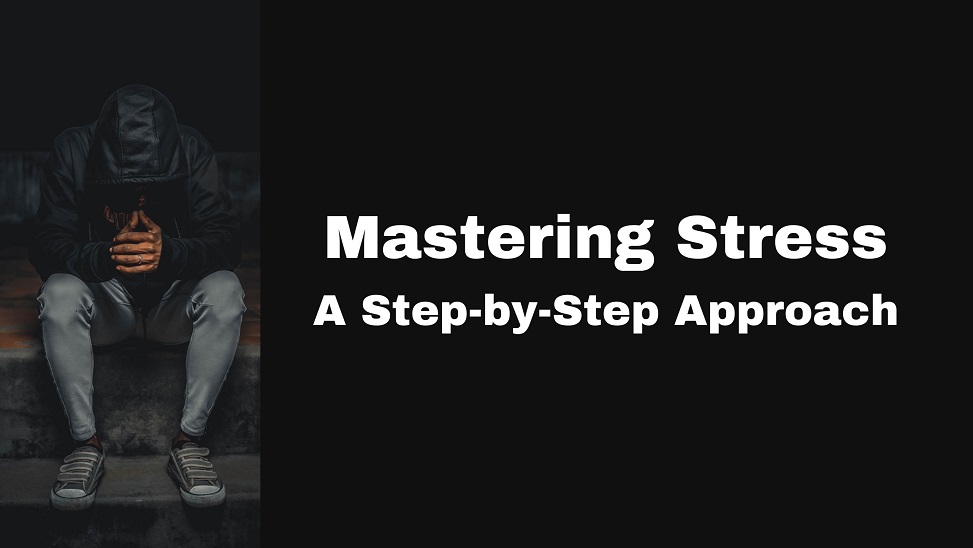Mastering Stress – A Step-by-Step Approach
In today’s fast-paced world, stress has become an inevitable part of our lives. However, the key to a healthier and more fulfilling life lies in our ability to master stress rather than letting it control us.
By adopting a step-by-step approach, we can learn to navigate challenges, enhance our resilience, and maintain balanced well-being.
This article outlines a comprehensive guide to mastering stress, offering practical strategies for each stage of the journey.
Understanding Stress
The first step in mastering stress is to understand its nature. Recognize that stress is natural response to demands and challenges.
It’s how we perceive and respond to stress that matters. Take time to identify your stressors, whether work-related, personal, or external.
Mindset Shift
Shift your mindset from viewing stress as an enemy to considering it a signal for growth. Embrace stress as an opportunity to learn, adapt, and develop new skills.
This shift can change your perspective and reduce stress’s negative impact on your well-being.
Set Clear Goals
Setting clear goals provides direction and purpose. Define short-term and long-term objectives, breaking them down into achievable steps.
The clarity in your goals helps you prioritize tasks and reduce stress caused by uncertainty.
Time Management
Effective time management is an essential for reducing stress. Create a daily schedule, allocating time for tasks, breaks, and self-care. Prioritize tasks based on the importance and urgency to prevent overwhelm.
Mindfulness and Relaxation
Practice mindfulness techniques to stay present and calm amidst stress. Engage in meditation, deep breathing, and progressive muscle relaxation. Regular practice can help you manage stress responses more effectively.
Physical Activity
Regular exercise has proven benefits for stress reduction. Engage in activities you enjoy, whether jogging, yoga, swimming, or dancing. Physical activity releases endorphins that promote a positive mood.
Nutrition and Hydration
A well-balanced diet supports stress management. Consume nutrient-rich foods like fruits, vegetables, lean proteins, and whole grains. Staying hydrated also plays a role in maintaining your body’s resilience to stress.
Quality Sleep
Prioritize sleep to enhance your ability to cope with stress. Create a comfortable sleep environment, establish a bedtime routine, and aim for around 7 to 9 hours of quality sleep each night.
Effective Communication
Clear communication is essential for managing stress in relationships. Express your needs and boundaries openly while actively listening to others.
Effective communication reduces misunderstandings and minimizes unnecessary stressors.
Problem-Solving Skills
Develop problem-solving skills to address stressors systematically. Identify the issue, brainstorm potential solutions, evaluate each option, and implement the most suitable solution. Proactive problem-solving reduces the impact of stressors.
Social Support
Connect with friends, family, and support networks. Sharing your feelings & concerns with loved ones provides emotional relief and fosters a sense of belonging.
Mindful Leisure
Engage in hobbies and leisure activities that bring you joy. Taking time for enjoyable activities enhances your overall well-being and helps combat stress.
Seek Professional Help
If stress becomes overwhelming, don’t hesitate to seek professional guidance. A therapist or counselor can provide personalized strategies for managing stress and building resilience.
Conclusion
Mastering stress is an ongoing journey that requires commitment and practice. By following this step-by-step approach, you can gradually shift your relationship with stress from struggle to empowerment.
Embrace stress as an opportunity for growth, prioritize self-care, and adopt effective strategies to navigate challenges.
With time, dedication, and a proactive mindset, you can achieve balance, resilience, and well-being in the face of life’s demands.
Thanks for visiting How To Cure Stress

